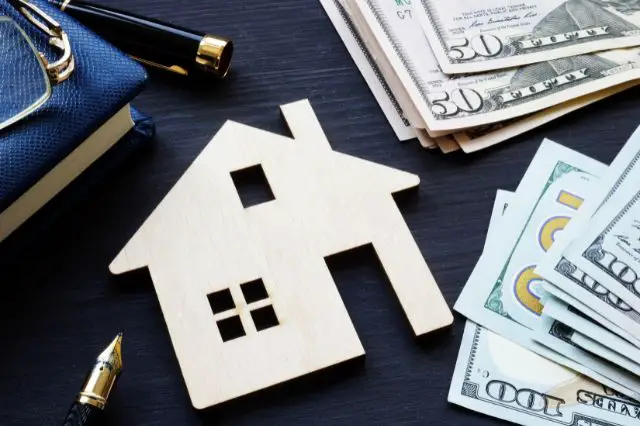Investment
How to Sell Your House Fast in Pennsylvania

Selling a house can be hard, especially if you want to do it fast. In this article, we’ll give you several tips to sell your house quickly in Pennsylvania.
Pennsylvania is a big state with different rules in different areas, so it’s important to have a good plan to sell your home quickly. To make things easier, you can talk to a zoning lawyer who knows the property laws and can help you sell your house faster.
Below is a complete guide on how to sell a house quickly. So, please read thoroughly to attract the right buyer for your house!
Here you go!
1. Price Your House Competitively
One of the most important things when selling your house fast is picking the right price. If you ask for too much money, it might take a long time to find a buyer. But if you ask for too little, you might lose a lot of money. Here are some tips to help you choose the best price for your house and get more people interested in buying it:
Seek a Professional Appraisal: Hire a special expert called an appraiser who knows a lot about property to figure out exactly how much your property is worth.
Analyze Local Listings: Explore houses in your area that are similar to yours to understand how the market works and figure out a good price that will attract buyers.
Stay Abreast of Market Trends: Keep yourself well-informed about current real estate trends in Pennsylvania and adapt your pricing strategy accordingly.
2. Enhance Your Curb Appeal
The first look is super important, so it’s really essential that your home looks really nice from the outside to attract people who might want to buy it.
Landscaping Excellence: Keep your yard very clean with well-kept grass, carefully cut bushes, and lots of colourful, welcoming flowers.
Exterior Maintenance and Aesthetics: Improve the exterior of your house by painting it, fixing any obvious problems, and making sure the roof is in great shape.
De-Clutter with Finesse: Get rid of any clutter in the front yard, and think about giving the front door a new and attractive coat of paint.
3. Stage Your Home
Home staging can undoubtedly make your residence considerably more appealing to prospective buyers. Follow the steps below:
De-clutter and Depersonalize with Expertise: Eradicate personal items and eliminate excess clutter to assist potential buyers in visualizing themselves in the space.
Thoughtful Furniture Arrangement: Arrange your furniture to create a spacious, inviting, and flow-oriented atmosphere.
Amplify Natural Light and Ambiance: Maximize the influx of natural light and introduce ambient lighting to establish a cosy, inviting atmosphere.
4. Market Your Property Aggressively
Effective marketing is really important if you want to sell your house quickly in Pennsylvania. Here’s how you can do this:
High-Quality Photography by Professionals: Invest in the services of a professional photographer to meticulously capture your home’s most alluring features.
Exhaustive Online Listings: Publicize your property across a multitude of online platforms, including prominent real estate websites, social media channels, and local classifieds.
Virtual Tours for Enhanced Visibility: Elevate your marketing endeavors by creating a virtual tour that offers potential buyers a comprehensive and immersive view of your property.
5. Work with a Seasoned Real Estate Agent
Experienced real estate agents know a lot about selling houses and have many helpful connections. They can help you sell your house faster. Here’s how they can help you:
Local Expertise: Select an agent with profound insight into the specific nuances of the Pennsylvania real estate market.
Masterful Negotiation Skills: An adept agent can negotiate astutely on your behalf, ensuring that you secure the best possible deal.
Leverage Their Network: Agents have a network of potential buyers, which speeds up the selling process.
6. Be Flexible with Showings
If you want to sell your property fast, it’s crucial to be open to different times or flexible when you can let people see it. Keep in mind the following tips:
Open Houses Galore: Consider hosting multiple open houses, extending them to weekends and evenings to maximize exposure.
Scheduled Showings with Amiability: Allow prospective buyers to visit at their convenience, even if it means accommodating non-standard showing times.
Prompt Responsiveness: Show that you can quickly answer questions and fulfill requests to keep things moving smoothly.
7. Spotlight Your Home’s Unique Features
Making your property special and unique is really important to make sure it gets noticed in the Pennsylvania real estate market.
Embrace Energy Efficiency: If your property boasts energy-saving features, such as solar panels or state-of-the-art appliances, shine a spotlight on them.
Promote Location Benefits with Zeal: Tell people that the property is close to schools, parks, stores, and easy-to-reach public transportation.
Historical or Architectural Distinction: If your residence bears unique architectural elements or boasts a storied historical background, make the most of these selling points in your marketing efforts.
8. Consider Cash Home Buyers
When you really need to sell your house quickly, you can think about selling it to people who pay with cash. They can often finish the deal in just a few days and might buy your house as it is without you having to fix or renovate it. This can save you a lot of time and money.
9. Set Realistic Timelines
Having a clear timeline can give you a plan and make you feel more motivated when you’re trying to sell a house.
Establish a Firm Deadline: Determine a closing date for the sale, creating a sense of urgency and a clear goal for the transaction.
Plan and Prepare with Precision: Make meticulous preparations for your upcoming move or next housing arrangement to avoid any unnecessary delays.
10. Be Prepared to Negotiate Shrewdly
When you get offers from people who want to buy your house, make sure you’re ready to talk to them about the deal. Think carefully about things like the price, how much it will cost to close the deal, and any special conditions so that both you and the buyer can agree on a good deal.
Conclusion
In short, selling your house quickly in Pennsylvania can be done if you follow some smart steps. First, set a good price for your home. Make your house look nice and get help from professionals.
Be ready to respond to potential buyers and be flexible. Focus on the things that make your house special. Pennsylvania’s real estate market is different, so adjust your plan to fit your area.
Thanks for taking the time to read this article!
What additional tips or insights would you like to know about selling a house fast in Pennsylvania? Your feedback can help us provide more tailored guidance in the future.
Best of luck with your house sale journey!
Investment
Unlocking the Future: The Rise of Tokenized Real Estate Investments


Imagine this: you’re a young professional with a steady income, yearning to diversify your portfolio and tap into the historically stable world of real estate.
But the hefty down payments and geographic limitations of traditional property ownership feel like insurmountable hurdles.
Sound familiar? You’re not alone. Countless individuals, particularly millennials, face similar roadblocks when it comes to entering the real estate market.
This is where tokenized real estate emerges as a revolutionary solution, democratizing access and transforming the way we invest in property.
The Frustrations of Traditional Real Estate
- High Entry Barriers: Astronomical down payments and closing costs often exclude first-time investors and those with limited capital.
- Lack of Liquidity: Selling traditional properties can be a lengthy and complex process, hindering quick portfolio adjustments.
- Geographic Limitations: Investing in distant, high-growth markets is often impractical due to logistical and legal challenges.
Enter Tokenized Real Estate
This innovative approach leverages blockchain technology to represent fractions of physical properties as digital tokens. These tokens, tradable on secure platforms, offer a plethora of advantages:
- Fractional Ownership: Invest in a portion of a property, making real estate accessible with lower capital requirements.
- Increased Liquidity: Buy and sell tokens seamlessly on digital exchanges, offering greater flexibility and faster transactions.
- Global Reach: Invest in properties worldwide, regardless of location, diversifying your portfolio and tapping into new markets.
The Pennsylvania Perspective
The tokenized real estate market is still nascent, but Pennsylvania is witnessing its early stages of development.
A recent study by the Center for Real Estate at the University of Pennsylvania highlights the growing interest in tokenized real estate, with 25% of surveyed investors expressing intent to invest in this asset class within the next year.
This indicates a significant shift in investor sentiment and paves the way for future growth in the state.
Benefits Beyond Investment
The impact of tokenized real estate extends beyond individual investors. Here are some key advantages for various stakeholders:
- Real Estate Developers: Raise capital efficiently through tokenized offerings, democratizing access to funding and potentially reducing reliance on traditional financial institutions.
- Property Managers: Streamline operations and improve transparency through tokenized ownership structures, fostering trust and engagement with investors.
- Regulators: Develop regulatory frameworks that balance innovation with investor protection, fostering a healthy and sustainable tokenized real estate ecosystem.
FAQs
- Is tokenized real estate safe?
- Blockchain technology offers inherent security, but thorough due diligence and understanding the associated risks are crucial.
- How do I invest in tokenized real estate?
- Research reputable platforms, understand the legal landscape, and seek professional guidance if needed.
- What are the future prospects of tokenized real estate?
- Experts predict significant growth in this market, driven by increasing investor interest and technological advancements.
Tokenized real estate is not just a buzzword; it’s a transformative force reshaping the real estate landscape.
By understanding its potential and navigating the evolving regulatory environment, you can unlock exciting investment opportunities and be part of this revolutionary journey. Remember, the future of real estate is tokenized, and the time to explore is now.
Disclaimer: This blog post is for informational purposes only and should not be considered financial advice. Please consult with a qualified financial advisor before making any investment decisions.
Investment
Why Airbnb in Austin, TX, is a Great Investment


In the lively and dynamic Austin, Texas, the Airbnb sector is experiencing remarkable growth, offering an unparalleled chance for real estate investors. Famed for its diverse music culture, deep-rooted historical richness, and rapidly expanding technology sector, Austin attracts both leisure and business travelers in droves. This influx of visitors has transformed Austin into a prime location for Airbnb ventures.
Successfully tapping into this flourishing market often requires collaboration with a seasoned specialist in Airbnb management, such as MasterHost (https://masterhost.ca/airbnb-management-austin/), which can significantly enhance investment outcomes.
Austin’s Top Benefits for Airbnb Investors
Austin, Texas, offers a remarkable platform for those interested in Airbnb investments. The city’s vibrant culture, robust economic expansion, and open stance on short-term rental properties make it an ideal spot for such ventures.
Tourism Growth and Cultural Attraction
Austin’s eclectic mix of musical, artistic, and cultural events, highlighted by notable festivals like South by Southwest (SXSW) and Austin City Limits, draws a multitude of visitors each year. This ongoing wave of tourists provides a constant need for temporary accommodations, benefiting Airbnb hosts in the area.
The city’s rich cultural tapestry, ranging from its renowned music scene to its historic sites and gastronomic experiences, captivates a broad spectrum of visitors. Such cultural richness not only leads to higher occupancy rates but also enables property owners to command top-tier prices during peak periods and events.
Economic Growth and Tech Boom
Austin’s burgeoning tech industry, marked by the arrival of major companies and startups, has increased business travel. These professionals often prefer the comfort and convenience of Airbnb accommodations over traditional hotels, providing a consistent customer base for hosts.
The city’s economic stability and growth promise long-term profitability for Airbnb investments. A strong economy means more job creation, which drives the demand for short- and long-term housing solutions, including Airbnb rentals.
Favorable Regulatory Environment
Austin’s regulatory landscape is particularly conducive to Airbnb investments. Several key aspects characterize this favorable environment:
- Clear Short-term Rental Regulations: Austin has established clear and concise regulations for short-stay rentals. These rules provide clarity and predictability for Airbnb hosts, allowing them to operate with an understanding of the legal framework.
- Simplified Licensing Process: The city has streamlined the process for obtaining vacation rental licenses. This simplification reduces bureaucratic hurdles, making it easier for new owners to enter the market.
- Reasonable Taxation Policies: Austin’s taxation policies for short-term rentals are reasonable and manageable. This approach balances the city’s need to generate revenue and the hosts’ ability to run profitable businesses.
- Supportive Zoning Laws: The city’s laws support vacation rentals in most residential areas. This broad acceptance enables owners to choose from various locations for their Airbnb properties.
- Community Engagement in Policy Making: Austin’s approach to regulation includes community engagement, allowing hosts and other stakeholders to have a voice in policy-making. This inclusive strategy ensures that the regulations are balanced and consider the needs of all parties involved.
These factors collectively create a nurturing environment for Airbnb hosts in Austin, offering them a stable and predictable platform to grow their businesses.
Diverse Visitor Demographic
Austin’s appeal to various demographics, from music enthusiasts and food lovers to corporate visitors and families, ensures a broad market for Airbnb hosts. This variety increases the chances of higher occupancy rates and allows for dynamic pricing strategies.
The diverse visitor demographic leads to a consistent flow of guests throughout the year. Seasonal events, music festivals, and conferences create peak periods where demand for Airbnb rentals surges, significantly boosting income potential.
Investing in Airbnb in Austin, TX, is not just about owning a property; it’s about tapping into a city’s vibrant culture, thriving economy, and diverse visitor base. With the right management approach and guidance from experienced services, investors can capitalize on these benefits, making their Airbnb venture profitable and enjoyable.
Conclusions
Investing in an Airbnb property in Austin, TX, offers a lucrative opportunity, given the city’s thriving tourism, booming economy, favorable regulations, and diverse visitor base. Having the right management strategy is crucial to maximize returns and ensure a smooth hosting experience.
Partnering with experienced Airbnb management services can help investors navigate the Austin market efficiently, turning their property investment into a successful and rewarding venture.
Incorporating Austin’s vibrant culture, economic strengths, and supportive community into your Airbnb strategy can lead to a prosperous and enjoyable hosting experience. With the right approach and expert guidance, becoming an Airbnb host in Austin could be your next successful investment.
Investment
Digital Real Estate: Your Guide to Profiting in The Online Property Market


In today’s fast-evolving digital era, the investment landscape is shifting. Traditional methods, once the cornerstone of success, now grapple with challenges. You may have encountered these: saturated markets, steep entry barriers, and rigid investment options. These factors often leave you searching for more dynamic opportunities.
Enter the realm of digital real estate, a sector brimming with untapped potential. This market stands apart from traditional real estate. It’s more flexible, more accessible, and often overlooked. Digital real estate encompasses websites, domain names, and virtual spaces, offering diverse investment possibilities.
Digital real estate is indeed a compelling alternative to conventional investments. This guide aims to steer you through the nuances of profiting in this innovative sphere. It’s tailored to help you navigate and capitalize on the opportunities within the digital property market.
1. Understanding Digital Real Estate
Digital real estate is an intriguing concept, mirroring yet differing from traditional real estate. It includes websites, domain names, and virtual spaces within online worlds. Each element forms a unique type of property in the digital realm.
Websites act as virtual land plots. Their value hinges on factors like traffic and content quality, much like location and amenities in physical properties. Domain names are akin to street addresses. A catchy, relevant domain can be as valuable as a prime real estate location. Virtual properties in online worlds offer a futuristic investment angle.
Each form of digital real estate presents distinct investment opportunities. They offer a chance to own a slice of the ever-expanding digital universe, much like traditional real estate, yet with its unique dynamics and growth potential.
2. Assessing The Market Value
Evaluating the worth of digital properties is crucial. It’s similar to appraising physical real estate but with unique digital factors. These include web traffic, online visibility, development potential, and revenue capabilities.
In assessing the market value of digital properties, understanding factors like web traffic and online visibility is crucial. Experts in the field, such as Joshua T Osborne, highlight the importance of these factors in determining the worth of digital real estate. Osborne’s insights reinforce the idea that just as the location is critical in physical real estate, traffic, and visibility are paramount in the digital domain.
High-traffic websites or domains are akin to prime real estate spots, attracting more visitors and potential revenue. The development potential of a digital asset is essential too. It’s about how much you can enhance a website or virtual property to increase its value.
Revenue generation is another crucial factor. Websites and domains that generate income through ads, subscriptions, or sales are more valuable. These factors combined help you determine the market value of digital real estate, guiding your investment decisions.


3. Acquiring Digital Properties
Acquiring digital real estate involves vital steps and strategies. It’s a process akin to buying physical property but in the online world. Various platforms and marketplaces are available for this purpose.
First, identify where to buy. Websites, domains, and virtual properties are available on specialized platforms. Examples include website marketplaces, domain auction sites, and virtual world exchanges. Each platform caters to different types of digital properties.
Next, focus on negotiation. Just like in real estate, the asking price isn’t always final. Research the market value, understand the potential of the digital property, and negotiate accordingly. Aim to secure a deal that aligns with both the current value and future potential.
Lastly, pay attention to the transaction process. It often involves digital contracts and online payments. Ensure you understand the terms and use secure methods for the transaction. This step is crucial in successfully acquiring digital real estate.
4. Maximizing Property Value
Enhancing the value of your digital real estate is vital. It involves strategies similar to upgrading a physical property. Focus areas include website optimization, user engagement, content development, and SEO techniques.
First, website optimization is crucial. It ensures your site runs smoothly and appeals to visitors. This includes fast loading times, mobile responsiveness, and user-friendly design.
Increasing user engagement is another strategy. Engage your visitors with interactive features, regular updates, and responsive design.
Content development is vital. Provide valuable, relevant, and consistent content to attract and retain visitors.
Finally, leverage SEO techniques. They enhance your site’s visibility and traffic. SEO helps your site rank higher in search results, drawing more visitors and potential revenue.
5. Generating Revenue from Digital Assets
Generating income from digital real estate is a pivotal aspect. There are several methods, including advertising, subscriptions, e-commerce, and leasing or selling virtual space.
Advertising is a typical revenue stream. By hosting ads on your website or digital property, you earn money. The more traffic your site attracts, the more you can earn from advertisements.
Subscription models offer another avenue. Here, users pay for access to your content or services. E-commerce involves selling products or services directly from your website.
Lastly, leasing or selling virtual space is an option, especially in virtual worlds. You can lease out virtual land or sell it for a profit, similar to real estate transactions. Each of these methods can turn your digital assets into lucrative sources of income.
Conclusion
Digital real estate presents a dynamic and profitable investment avenue. It offers flexibility, accessibility, and potential for significant returns. From understanding what digital real estate is, assessing its value, to strategies for acquiring, enhancing, and monetizing these assets, this guide has covered crucial aspects of this innovative market.
Remember, the digital real estate landscape is constantly evolving. Staying informed about technological advancements and market trends is essential. Continual education will enable you to adapt and innovate within this space. Consider diversifying your investment portfolio to include digital properties. This approach spreads risk and positions you to capitalize on emerging opportunities.
Embrace the unique dynamics of the digital economy. Doing so opens doors to new investment possibilities, ensuring your portfolio remains robust and future-ready in an ever-changing digital world.
-



 Captions3 years ago
Captions3 years ago341 Sexy Captions to Fire Up Your Instagram Pictures
-



 Captions3 years ago
Captions3 years ago311 Night Out Captions for Instagram and Your Crazy Night
-



 Captions3 years ago
Captions3 years ago245 Saree Captions for Instagram to Boost Your Selfies in Saree
-



 Captions3 years ago
Captions3 years ago256 Best Ethnic Wear Captions for Instagram on Traditional Dress
-



 Captions3 years ago
Captions3 years ago230 Blurred Picture Captions for Instagram
-



 Captions3 years ago
Captions3 years ago275 Deep Captions for Instagram to Express Your Thoughts
-



 Quotes3 years ago
Quotes3 years ago222 Nail Captions for Instagram to Showcase Your Fresh Manicure
-



 Captions3 years ago
Captions3 years ago211 Laughing Captions for Instagram | Laughter Is the Best Medicine







